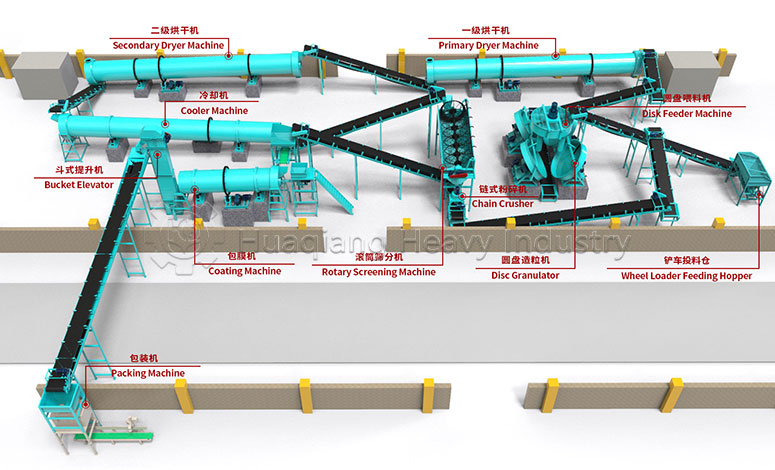Bio-organic fertilizer production lines drive the boom in organic farming
Bio-organic fertilizer production lines are vital for organic farming. They use efficient and eco-friendly methods to produce high-quality fertilizer that improves soil and helps crops grow healthier, pushing organic agriculture to a higher level.
1.Key Benefits
Fast Fermentation: Uses microbial inoculants to speed up decomposition, shortening production time and boosting organic matter content.
Eco-Friendly and Saves Energy: Cuts down on waste pollution and lowers carbon emissions, fitting the idea of green, circular farming.
Balanced Nutrients: Rich in organic matter, humic acid, and beneficial microbes. Improves soil structure and helps crops fight disease better.
2.Important Roles
Boosts Soil Health: Repairs soil ecosystems, improves water and nutrient retention, reduces chemical fertilizer use, and helps farmers achieve sustainable growing.
Improves Crop Quality: Crops grown with organic fertilizer taste better, are more nutritious, meet high-end market demands, and help farmers earn more.
Turns Farm Waste into Resources: These lines can use livestock manure, crop stalks, and other waste as raw material. This reduces pollution and creates an ecological cycle of “integrated farming”.
3.Future Trends
As technology advances, smart bio-organic fertilizer production lines will become standard. Using IoT and big data will optimize fermentation and boost efficiency.
Bio-organic fertilizer production lines aren’t just key to greening agriculture; they’re a powerful engine driving organic farming’s growth. With rising market demand and tech upgrades, this industry has a bright future ahead.
